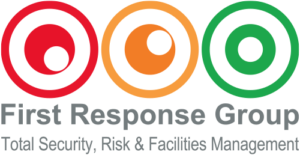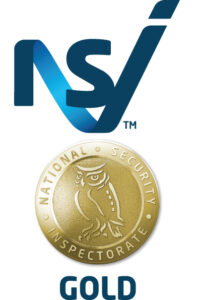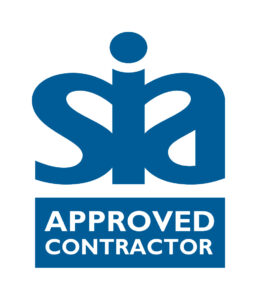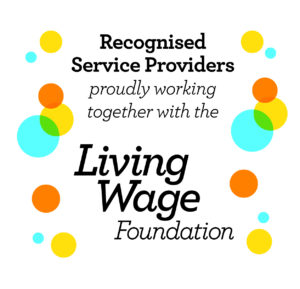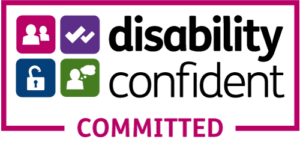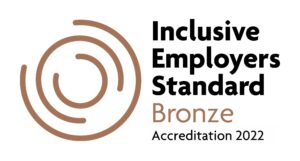This statement sets out First Response Group Ltd’s actions to understand all potential modern slavery risks related to its business and to put in place steps that are aimed at ensuring that there is no slavery or human trafficking in its own business and its supply chains. This statement relates to actions and activities during the financial year 1 August 2019 to 31st July 2020. It is noted that there is no legal obligation to publish this statement as required by the Modern Slavery Act 2015.
As part of the manpower services, the organisation recognises that it has a responsibility to take a robust approach to slavery and human trafficking.
The organisation is totally committed to preventing slavery and human trafficking in its manpower service activities, and to ensuring that its supply chains albeit predominately United Kingdom based and small are free from slavery and human trafficking.
Organisational Structure and Supply Chains
This statement covers the activities of First Response Group Ltd:
- We are an independent manpower provider to the infrastructure, construction and facilities management sectors. The organisation was founded in June 2007 and develops partnerships with its clients, understanding their service needs and strategy that lead to provision of bespoke solutions to meet expectations.
- The organisation’s workforce is employed on permanent and temporary Pay As You Earn (PAYE) contractual basis. All right to work, residency, competence cards/certificates and employment history verification checks are conducted in accordance with the Immigration, Asylum and Nationality Act 2006, British standards and Quality Management Systems procedure requirements.
The organisation currently operates in the following countries
- United Kingdom
Risk Assessment
There are no activities that are at high risk of slavery or human trafficking. Through the supplier/procurement code of conduct the organisation will ensure that all suppliers also adhere to the Modern Slavery Act 2015.
Responsibility
Responsibility for the organisation’s anti-slavery initiatives is as follows:
- Policies: Managing Director and Contracts Director
- Investigations/Due Diligence: The Contracts Director and Compliance Director are responsible for investigations and due diligence in relation to known or suspected instances of slavery and human trafficking.
- Training: The Contracts Director and Compliance Director are responsible for ensuring that the awareness of slavery and human trafficking risks are communicated throughout the organisation and through the supply chain.
Relevant Policies
The organisation operates the following policies that describe its approach to the identification of modern slavery risks and steps to be taken to prevent slavery and human trafficking in its operations:
- Employee Concerns (Whistleblowing) Policy: The organisation encourages all its stakeholders to report any concerns related to the direct activities. This can include any circumstances that may give rise to an enhanced risk of slavery or human trafficking. The organisation’s policy is designed to make it easy for workers to make disclosures, without fear of retribution. Employees, customers or others who have concerns can report any activities associated to slavery and human trafficking by contacting their immediate line manager, Human Resources or confidentially to the Managing Director via the website.
- Employee Code of Conduct: The organisation’s code makes it clear to employees the actions and behaviour expected of them when representing the organisation. The organisation strives to maintain the highest standards of employee conduct and ethical behaviour.
- Supplier/Procurement Code of Conduct: The organisation is committed to ensuring that its suppliers adhere to the highest standards of ethics. Suppliers are required to demonstrate that they provide safe working conditions where necessary, treat workers with dignity and respect, and act ethically and within the law in their use of labour. As part of the supply chain selection process all potential and existing suppliers are required to complete a Supplier Questionnaire to assess their suitability as a supplier. Within the Supplier Questionnaire all suppliers are required to provide evidence of their compliance towards Labour Standards and the Asylum & Immigration Act 2006. This enables the procurement team to identify any potential risks to the quality of the service provision or goods being provided by the supplier and prevent any slavery or human trafficking. All suppliers are audited against the supplier code of conduct.
- Recruitment Policy: The organisation only employs people on a permanent or temporary PAYE contractual basis. Prior to commencement of employment all employees are subject to right to work, residency, competence cards/certificates and employment checks in accordance with the Immigration Asylum and Nationality Act 2006 and British standards Quality Management System procedures. The Recruitment Policy is compliant to all EU and UK legislation, including the minimum wage and therefore is not at risk of slavery and human trafficking.
- Corporate Social Responsibility Policy: The organisation’s Corporate Social Responsibility Policy covers the responsibilities of the Board of Directors and its commitment towards the external Environment, Health & Safety, Workplace and assurance to the supply chain code of conduct. The Policy is communicated to the whole workforce and forms part of the induction programme.
- Anti-Bribery/Fraud Policy: The organisation’s Anti Bribery Policy aims to prevent any form of bribery being committed within the organisation and by any stakeholder(s) associated with its business. We foster a culture of integrity where bribery is unacceptable. This policy is communicated to all employees and forms part of the induction programme.
Due Diligence
The organisation undertakes due diligence when considering taking on new suppliers and regularly reviews its existing suppliers. The organisation’s due diligence and reviews include:
- evaluating the modern slavery and human trafficking risks of each new supplier in accordance with the supply chain selection process;
- conducting supplier audits by our Compliance Manager, which have more focus on personnel management and slavery and human trafficking where general risks are identified;
- If required, invoke sanctions against suppliers that fail to improve their performance or seriously violate our supplier code of conduct.
Performance Indicators
To comply with the Modern Slavery Act 2015, the organisation:
- Reviews its existing supply chains by the end of the financial year, this being 31st July 2019 to ensure their compliance to the Modern Slavery Act 2015.
- Awareness training is provided to all Directors, Managers, Supervisors and staff within the organisation as a module within the organisation’s induction, toolbox talks, management development and refresher programmes.
The organisation’s modern slavery awareness training covers:
- our business’ purchasing practices, which influence supply chain conditions and which should therefore be designed to prevent purchases at unrealistically low prices, the use of labour engaged on unrealistically low wages or wages below a country’s national minimum wage, or the provision of products by an unrealistic deadline;
- how to assess the risk of slavery and human trafficking in relation to various aspects of the business, including resources and support available;
- how to identify the signs of slavery and human trafficking;
- what initial steps should be taken if slavery or human trafficking is suspected;
- how to escalate potential slavery or human trafficking issues to the relevant parties within the organisation;
- what external help is available, for example through the Modern Slavery Helpline, Gangmasters Licensing Authority and “Stronger together” initiative;
- what steps the organisation should take if suppliers or contractors do not implement antislavery policies in high-risk scenarios, including their removal from the organisation’s supply chains.
Awareness-Raising Programme
As well as training staff, the organisation raises awareness of modern slavery issues by maintaining flyers/bulletins on the intranet portal.
The flyers/bulletins explain to staff:
- the basic principles of the Modern Slavery Act 2015;
- what employees can do to flag up potential slavery or human trafficking issues to the relevant parties within the organisation; and
- what external help is available, for example through the Modern Slavery Helpline. of conduct.
Board Member Approval
This statement has been approved by the organisation’s board of directors, who will review and update it annually.
Managing Directors signature:
Date: 01/10/2018
